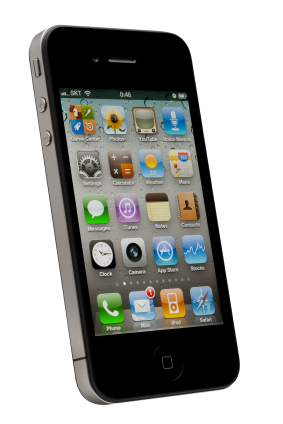Lose the Electronics! Make the Sale!
I was once in a meeting in Sanibel, Florida that was done in a spacious area styled meeting facility with two large screens integrated on two separate sides of the room. Some of the numerous profit center managers were presenting their plan for the upcoming year. It was not exciting but was informative. The meeting was prestigious as it was based on the having some of the most influential people in certain strategic business units together to review strategies.
______________________
It became obvious that many individuals in the room, all respectively high in their organizations, began checking their “crackberries” to find out what was happening back home.
The President and Chief Operating Officer then grabbed his personal microphone asked for everyone’s attention and said, “I have made arrangements with my assistant so that anyone who cannot turn off their Blackberry and give full attention to the presenters should go over to the help desk and get a ticket back home.” He was serious, and I think everyone got the hint.
Creatures of Habit
This one may sound simple, yet in this day and age it is a little more complicated. Let’s face the fact that this small item is something that you cannot do without in your daily life. You have integrated your calendar, your contact lists, your pictures and videos, as well as your ‘to do’ list. You check it every 5 to10 minutes or less to make sure that you are up to date, and…. Well you get the message here.
The problem with something that might be novel that you find indispensible is that others, including customers might find it a grand distraction, and even a turn-off. A distraction to the extent that it could cost you a sale or even a relationship.
This short post will cover some of the things you might want t think about when it comes to your electronics, and the all-important interface with your customer.
Watch carefully: When senior executives and the most important managers cut off their devices and put them away, most (but not all) people notice and do the same. That is why we call them leaders.
The Problem With Gadgets
Gadgets, and particularly electronics, have a place. I just suggest that it is not on a prospect or quote presentation call.
Some organizations provide presentation material on Ipads. I don’t necessarily think it is the best idea, as I have had presentations made to me with that device, but the device serves as storage and the actual output device (the screen).
Gadgets are not only a distraction; they can make you appear rude and insensitive. There is nothing about them that screams “customer focus”.
- Alarms and tones which interrupt, startle, and distract customers and clients
- They are not totally reliable when you need it
- They are battery operated, increasing the unreliability.
- Smart phones, PDAs, tablets, and laptops can create customer jealousy. Many customers personal and business budget constraints keep them from having some expensive items.
Productivity Suffers Too!
Productivity woes as a result of smart devices happen whether you are talking about customers or sales professionals. There is no clear measure for it, but it does happen.
Anytime appointments are missed, contact information lost, and files misplaced, there are hits against productivity.
In meetings, more frequent breaks have to be taken for people to access their phones, Blackberries, and even office devices. In this day and age, questions can’t wait, answers can’t be delayed, and everything happens at the speed of light. People are pressed to answer because answers and responses are expected.
Driving Danger
One of the other problems with these electronic devices is that once people believe that they have to provide ‘instant’ responses because it is expected, the real problem can happen. The real problem is employees checking devices while they are driving. As everyone knows, this is illegal in most states.
If you listen on any topic, let it be this one. If you get a ticket for texting while driving, or using a cell phone without a hands-free device when it is illegal, there are organizations that may not hire you if you are in outside sales. That is whether you have a company car or not because of the exposure that an employer has for gross negligence. Gross negligence is a blatant violation of a legal duty with respect to the rights of others. It warrants large jury awards when it is proven.
Do the Right Thing
As a sales professional ‘do the right thing’ regarding your electronics. Turn off ringers, and even vibrate modes while with customers. There should be no distractions. Use devices in the sales process only when it makes sense, and when your company requires it.
Whether with a customer, your boss, your coworker, or anyone else, your objective is to give them your attention. Your electronics can wait!
Avoid violations while driving that can affect your record on a near-permanent basis. Impress your buyer with your knowledge and skills, and remember that neither relationships nor sales are made with electronic devices. They should just make life easier for you.
Your comments are appreciated
 March 19, 2015
|
Posted by Admin9!
March 19, 2015
|
Posted by Admin9!

 Categories:
Categories:  Tags:
Tags: 

Your Comments